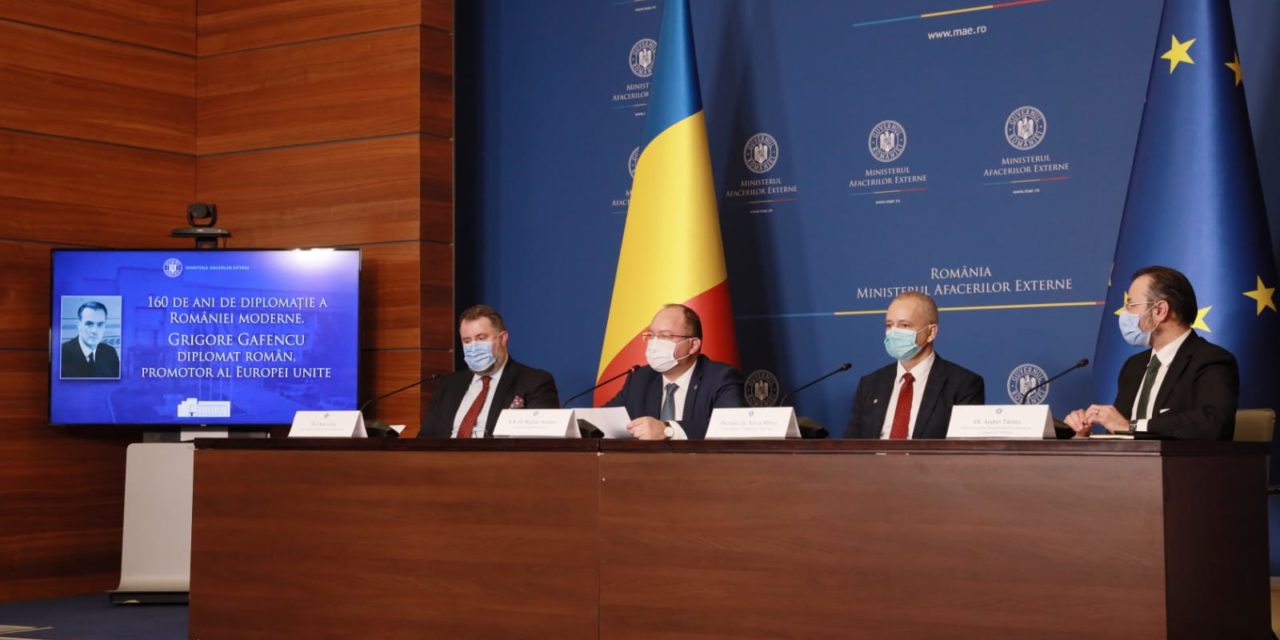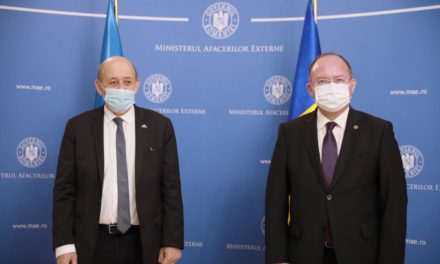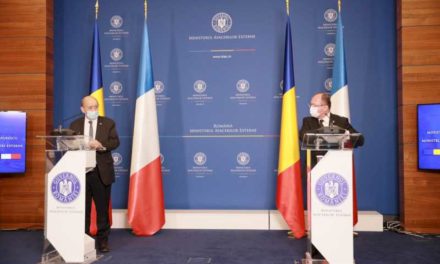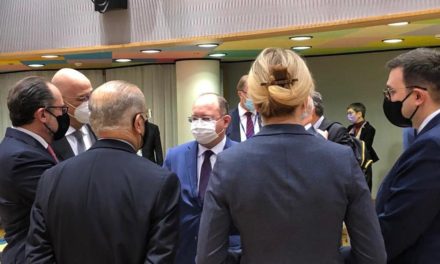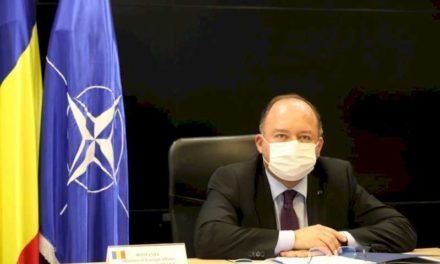Bogdan Aurescu: Good afternoon, everybody. I am looking forward to a very rich discussion today and tomorrow on the most important issue, which is the EU-Russia relationship and the impact of the war of aggression of Russia against Ukraine. Of course, for Romania, this is of utmost importance and I will emphasize a couple of things.
First, it is important to continue to support Ukraine – and I will present Romania’s effort on multiple domains, for instance on the humanitarian field, with more than 2.1 million Ukrainian refugees who crossed our borders, and we have taken care of everybody.
Another effort, especially important now, as far as the other topic on the agenda – EU-Africa relations, the food crisis – is concerned: we have supported a lot the transit of Ukrainian grain through Romania. As of the 17th of August, more than 3.4 million tons of Ukrainian grain have passed through Romania, which is almost a half of the total of Ukrainian grain exports this period. And we will continue with our effort to support Ukraine: the political, economic and support in other areas will continue.
I will express concern about the possible effects of the planned referendums to be organized in the occupied regions of Ukraine to join Russia. This is a matter for which the European Union has to be prepared, and I think it’s important to start the discussions on this matter, as well.
We have to continue to support Ukraine in consolidating its defense capacities and I’m looking forward to the presentation by High Representative Borrell of the results of the debate of the meeting of the Defense Ministers on the issue of creating a mission for assistance and training for Ukrainian armed forces, in order for us to be able to discuss also from the political side, from the side of the Foreign Ministers.
The second important aspect is that we have to continue to pressure Russia. And from this perspective, I will present the position of Romania regarding the issue of banning visas for Russian citizens. We support fully the suspension of the Visa Facilitation Agreement, and at the same time, we will be open to take decisions, further decisions, in order to restrict the circulation of Russian citizens within the European Union, with accent on visas issued for tourism. But, of course, we need a solid legal basis, a solid legal ground for that, and we have to be very careful in order not to block the possibility of exposing the young generation in Russia to the European values, on one hand. On the other hand, it is important not to ban humanitarian visas, or medical visas, or visas to be granted to those persons who are opposing the regime or who are threatened by the regime in Russia.
So we need to discuss all these matters and, after we have all arguments on the table, to take a decision. I have to stress the fact that, because Romania is not yet a member of the Schengen space, we do not issue Schengen visas, so we issue bilateral visas to Russian citizens. Since the beginning of the year we have issued a limited number of visas, only around 800, out of which only 130 were visas for tourism.
On another matter which is very important, the EU-Russia relations as such, I will stress the fact that we cannot return to “business as usual”. It is, of course, early to assess what is going to be the future of the relationship between EU and Russia, because it depends on the evolution on the ground in Ukraine, but one thing is sure – we have to get rid of all dependence from Russia.
Another important meeting we will have tomorrow will be with the Foreign Ministers of Ukraine, Republic of Moldova and Georgia. And this is very important because it is the first such meeting after the crucial decision which was taken by the European Council in June to grant candidate status for these countries. So we have to listen to these countries, to learn what their needs are, to provide assistance, to provide technical support for reforms which are needed in this process of becoming members of the European Union, and we have to provide also support for increasing their resilience.
Last, but not least, the Eastern Partnership is important, because since the Summit last year, in December, a lot has changed geopolitically and geostrategically. So we need to think how to adapt Eastern Partnership, in order to respond to the new realities, to support reforms in these countries, to support increasing their resilience, to support better connection of these countries with the European Union, and, of course, to provide more concrete projects to make the Eastern Partnership more visible.
Of course, EU-Africa relations, this is important from the perspective of tackling the challenges which are coming from the Russian aggression against Ukraine, especially the food crisis, but also [from] an increased Russian presence in Africa, with all negative consequences coming from this. Thank you.
Sursa: Declarațiile ministrului Bogdan Aurescu înaintea reuniunii Gymnich

